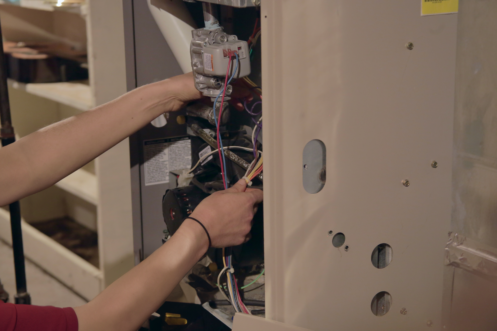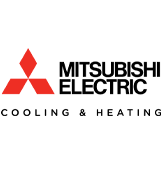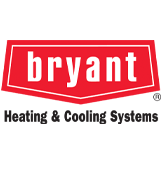
During cold weather, your furnace is the unsung hero saving you from the torment of cold climates. Warming up your house and maintaining the perfect temperature are its primary jobs, and efficient furnaces handle them well. When your furnace is operating as it should, your home will be a cozy haven of warmth and security. If your hero drops the ball, however, you could be left out in the cold. You turn your furnace back on, but it switches off again. Frustration turns to worry and distress, and you have no idea why your heater has suddenly become unreliable.
What’s going on? Why has your home turned into an icebox while your heating system refuses to stay on? Below are six reasons your furnace keeps shutting down and when you need to call an expert.
1. Electrical Problems
Electrical problems are at the top of the list when it comes to problems that could affect your furnace’s ability to run smoothly. During winter storms, electric power surges and outages can occur, interfering with your furnace’s operation and shutting it off periodically. Power outages can be difficult to counteract, but if they’re the underlying cause of your furnace switching off repeatedly, you might benefit from the installation of a generator. A generator can keep your home running smoothly whether the grid is operating normally or not.
The problem might also stem from faulty wiring, a broken fuse, or a tripped circuit breaker. Any of these issues can affect the flow of electricity from the source to the furnace, causing it to shut down. Tripped circuits and blown fuses are often associated with sudden power surges in the electrical system. Electrical problems within the control board of the heater can cause unpredictable but regular shutdowns.
2. Gas Supply Problems
Gas supply issues will interrupt the smooth operation of your heating system. One of the most severe and dangerous gas supply problems is a leak. The leak could be anywhere in the supply line or the system. It will not only disrupt the furnace’s operation but also compromise your home’s safety. Problems with the gas valves can also cause interrupted furnace running. If not fully open, the valve will only allow inadequate gas to reach the burners, leading to a shutdown.
There are many other factors related to gas supply issues that trigger the shutting down of a furnace. Pressure problems, interrupted gas supply, and sediment or debris in the gas line may be why your heater keeps turning off. Resolving this issue requires you to call your professional HVAC technician for a comprehensive check-up. They can help identify the cause of your furnace gas supply-related problem.
3. Overheating
Furnaces are preinstalled with safety features that prevent overheating. The safety features will trigger the heater to shut down whenever the temperature rises too high. Overheating is often a result of restricted airflow due to dirty or clogged air filters, closed or blocked vents, and obstructions in the ductwork. Failure to fully dissipate heat through these components eventually causes overheating.
An improperly sized furnace, whether too small or too large, can also lead to overheating. A small furnace is forced to overwork to heat an ample space, while a large furnace in a small space will generate more heat than required. Overheating is a serious problem that should be addressed promptly to prevent system damage.
4. Mysterious Thermostat Issues
The thermostat is at the center of your furnace system and responsible for temperature regulation. By detecting the environment’s temperature, the thermostat dictates when the heater should kick on and when to shut down. When thermostat issues begin, they disrupt the control ability, leading to frustrating and uncontrolled furnace operation.
Incorrect settings and calibration issues are some simple explanations that are often overlooked. Sometimes, an accidental adjustment will shut off your furnace before it reaches the desired temperature. The thermostat needs to measure the environment’s temperature for it to function correctly. Improper calibration is one issue that can result in the thermostat’s inability to reflect the actual room temperature. It’s also possible that the thermostat isn’t working properly due to battery issues. Most thermostats require batteries; if they’re low or depleted, the thermostat doesn’t function correctly.
5. Pilot Light Defects
The pilot light is a small, continuous flame that ignites the gas burner in your furnace. It burns in a consistent blue color. When it malfunctions, the pilot light will lead to frequent furnace shutdowns, leaving you cold. A dirty pilot light may flicker or go out inconsistently. Besides the pilot light is the thermocouple, a safety device that senses the heat from the pilot light. Once the pilot light is off, the thermocouple will signal the gas valve to shut off. However, due to defects in the thermocouple, it can mistakenly signal the valve to close even when the pilot light is still on.
Improper pilot light adjustment is another possible reason your furnace might keep shutting off. If the flame is too weak or too strong, there will be issues with the furnace’s performance. A properly functioning pilot light is the foundation of your furnace, helping it to remain functional and reliable.
6. Faulty Ignition System
The ignition system is responsible for igniting the fuel that powers the furnace. If it fails to operate effectively and the fuel fails to ignite as it should, the furnace will keep turning off. There are three significant types of ignition systems. A standing pilot ignition system is standard in older furnaces and has a small, continuously burning flame that ignites the fuel. The hot surface igniter is used in modern furnaces and is an electrically powered device that heats up to ignite the burner. The third is a spark ignition system that sparks to light the burner.
Regardless of the type of ignition system in your furnace, a faulty igniter will fail to ignite the fuel properly and thus significantly contribute to the failure of your furnace to stay on.
Many defects within the furnace system may be the root cause of your furnace constantly shutting down. Some of these reasons, such as power outages and dirt, are easy to diagnose and resolve through regular maintenance. However, if you encounter persistent issues or are unsure about the source of the problem, seeking the help of a professional HVAC technician is the only way to ensure the safety and efficiency of your furnace. If you notice gas leaks, persistent furnace shutdowns, unusual noises, lack of heat, or electrical issues beyond a power outage, then it’s time to call your HVAC technician.
Polar Air & Heating, Inc. is the go-to source when you need a professional and licensed HVAC technician to solve the problems with your heating system. Since 1998, we’ve offered high-quality heating and air conditioning services in Las Vegas, NV. We know how hot it gets during the summer and how low the temperature can get during the winter. We’ve dedicated ourselves to providing consistent, reliable, and professional services for all of our clients’ needs. Our BBB-accredited business is a Lennox Premier Dealer and a Mitsubishi Diamond Contractor. Plus, we work with Energy Star-certified products whenever possible. Contact Polar Air & Heating, Inc. today for repairs, maintenance, or new system installation, and reap the benefits of our expertise.




















